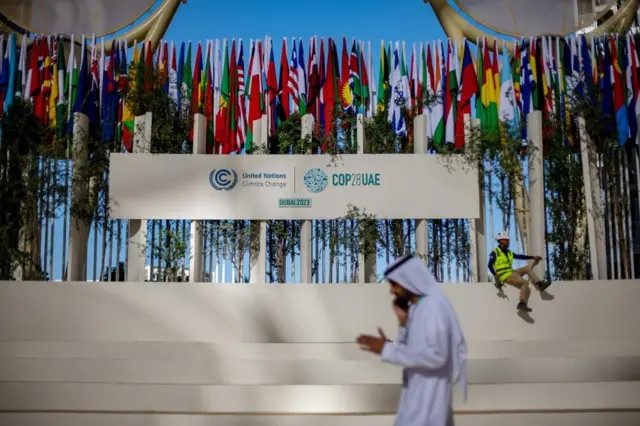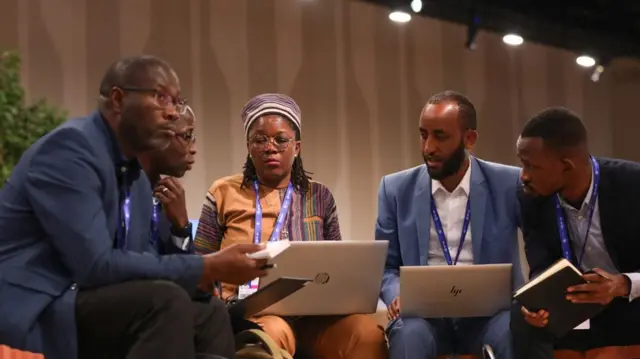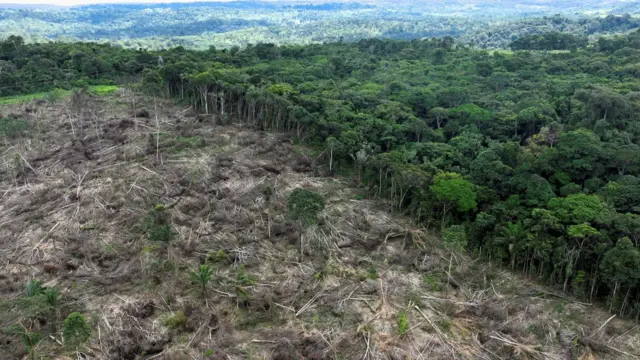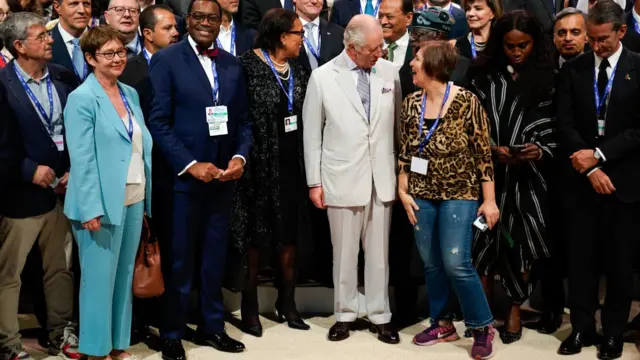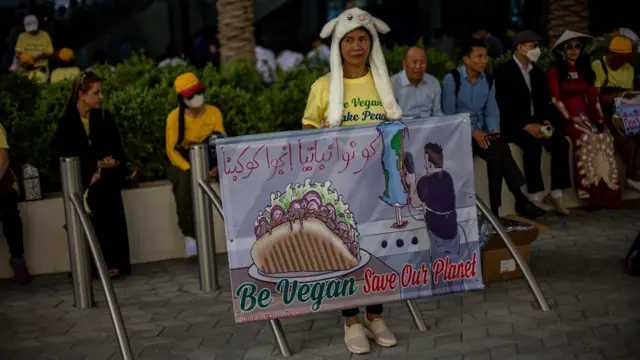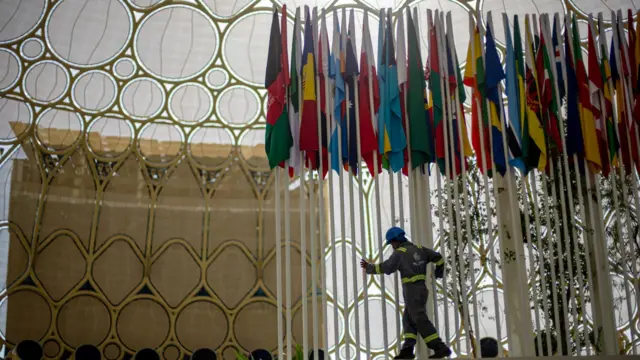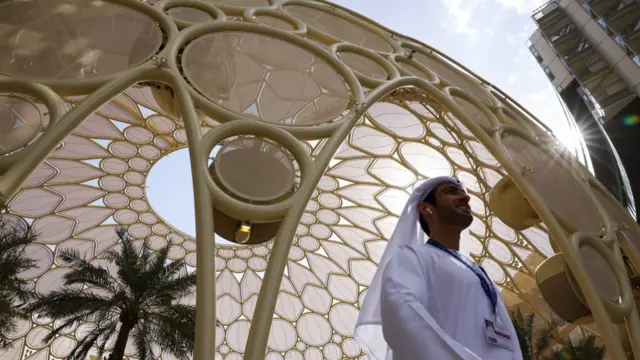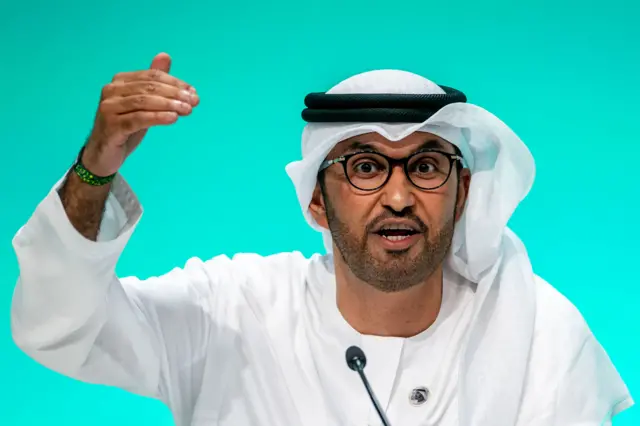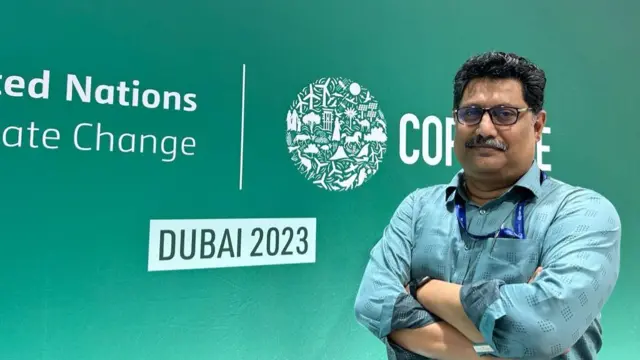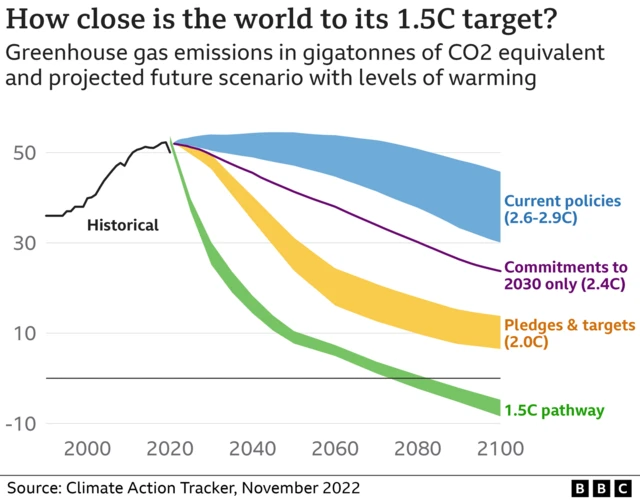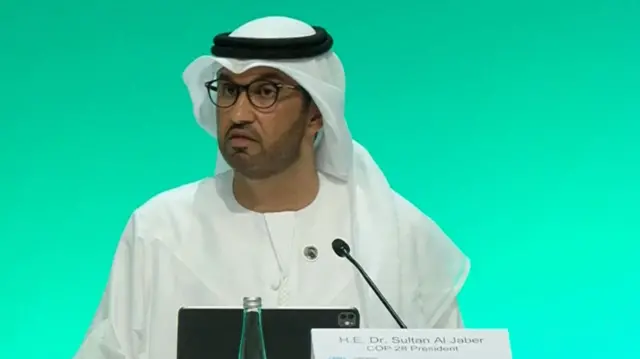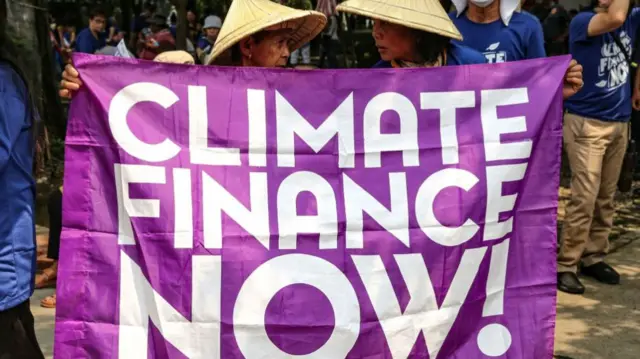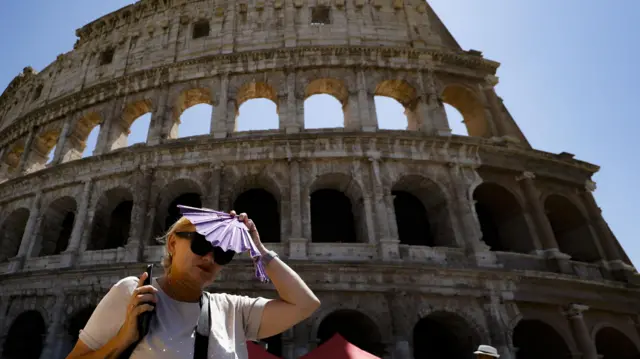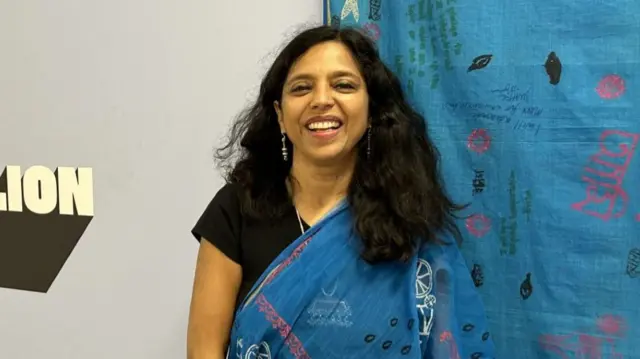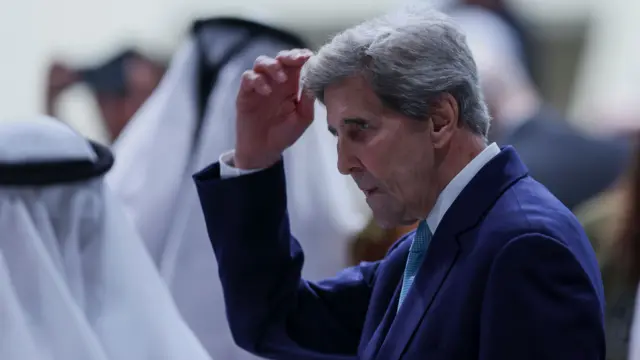King Charles to say climate warning signs are being ignoredpublished at 07:13 GMT 1 December 2023
We're expecting to hear from King Charles in the next hour or so but a small part of his address has been released to the media already.
He's expected to say he hopes COP28 will be a "critical turning point towards genuine transformational action", and to tell the gathered leaders and negotiators that the "hope of the world" rests on their decisions.
King Charles is also expected to say that, despite some progress, repeated warning signs of climate change are being ignored, bringing devastating consequences for lives and livelihoods around the world.
He has spent much of his life campaigning to protect the environment, and has already opened two UN climate summits - COP26 in Glasgow in 2021, and COP21 in Paris in 2015 - when he was the Prince of Wales.
But this will be his first COP as king, and now he's subject to different rules - with the British monarch obliged to remain politically neutral.
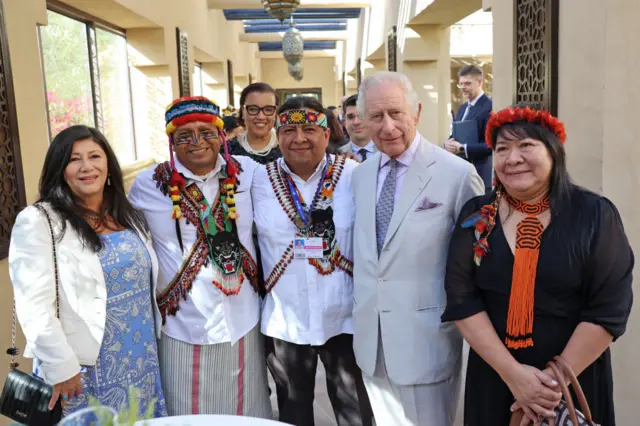 Image source, Getty Images
Image source, Getty ImagesKing Charles spent time with global and Commonwealth indigenous leaders at a reception at COP28 on Thursday


